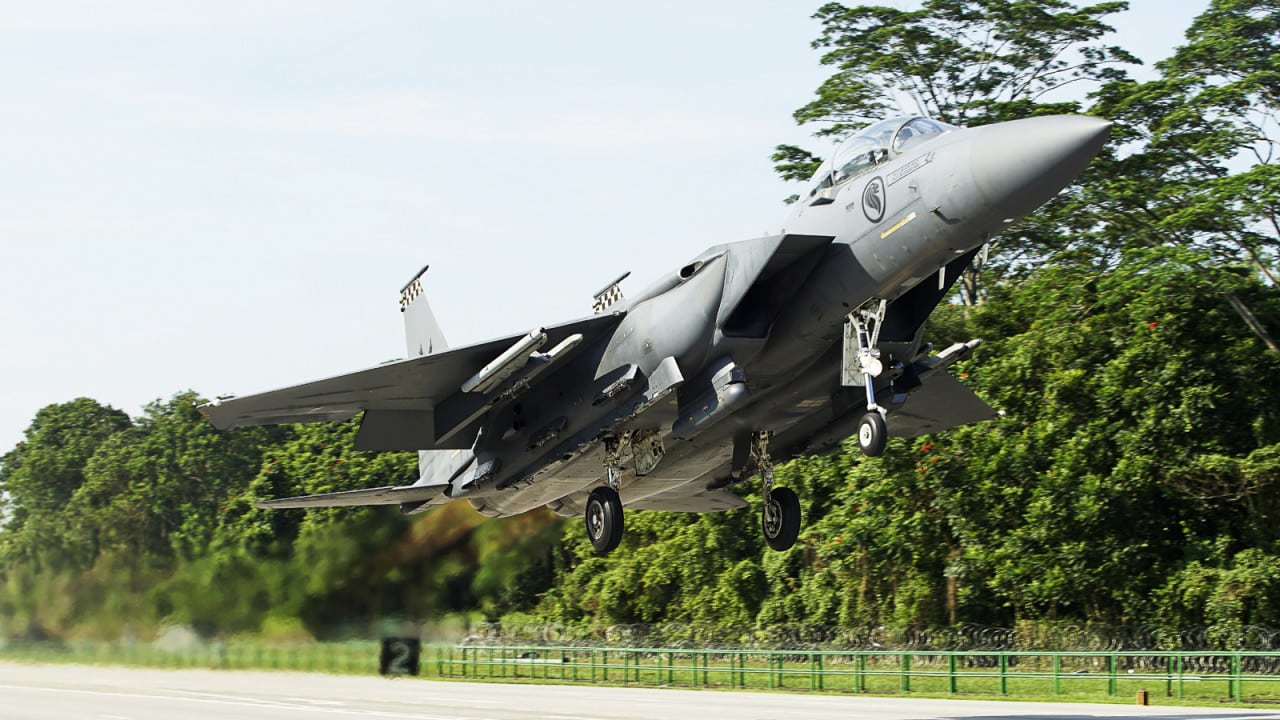
A Boeing F-15SG in service to the Singapore Royal Air Force. Photo courtesy of the Singapore Royal Air Force
Boeing and a Singaporean defense agency agreed Thursday on a joint research and development project on data analytics to better understand how well military aircraft are performing and predict future needs for operations and maintenance.
The deal is between Boeing’s nearly year-old Global Services segment and Singapore’s Defence Science and Technology Agency (DSTA). Boeing Global Services stood up last July to capture business related to the operations and maintenance of defense and commercial aircraft.
Boeing’s goal is to grow its services business to around $50 billion within 10 years. In 2017, Global Services reported revenues of $14.6 billion.
Data analytics for aircraft operations is one of the key focus areas of Boeing Global Services, and the company is looking to expand its expertise here in the commercial area to defense.
“As we broaden our demonstrated commercial digital portfolio and apply them to defense systems operations, many will benefit from data-driven solutions that will increase the overall effectiveness of operations,” Stan Deal, president and CEO of Boeing Global Services, said in a statement.
Under the agreement that was signed at the Singapore Defense Technology Summit this week, Boeing and DSTA will develop analytics that will be applied to Singapore’s Royal Air Force F-15 fighters and AH-64 attack helicopters, which are both built by Boeing.
“Under this agreement, we will jointly develop an information management tool leveraging data analytics to identify trends and insights on aircraft performance,” Tan Peng Yam, chief executive of DSTA, said in a statement. “This signifies our emphasis on tapping digital technologies and working closely with the industry to co-develop new capabilities.”
In an interview with Defense Daily earlier this month, Deal said that there’s a “big opportunity” to provide data analytic tools to defense customers.
“Things like aircraft health monitoring, data analytic-driven prognostics around maintenance practices that will allow the defense [customers] to benefit like the commercial environment has so we’ve got a pretty significant focus on availing those capabilities into the defense market in a way that satisfies their unique needs,” Deal said in the interview.
Boeing Global Services is working with the U.S. armed forces and some international defense customers to bring its commercial data analytics capabilities to bear on their systems, Deal said.
Boeing did more than $1 billion in data analytics services business in 2017, providing customers with cost savings in their operations that amount to about 10 times the value of the investment, Deal said. Commercial customers have found this a “great value play,” he said.
Currently, roughly 90% of the digital analytics services business is for commercial customers and Deal believes that as the company broadens its focus to the defense market, the defense side of this business could grow to about 40% of the analytics sales. The digital analytics business can grow “exponentially,” reaching about $10 billion, or around 20% of Global Services sales within 10 years, he said.
This story was originally published at Defense Daily.